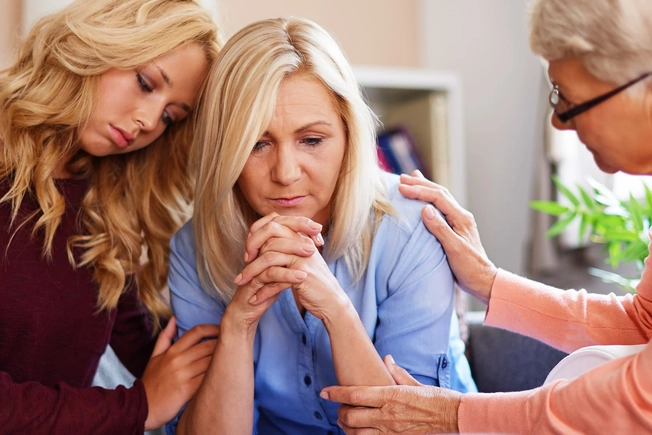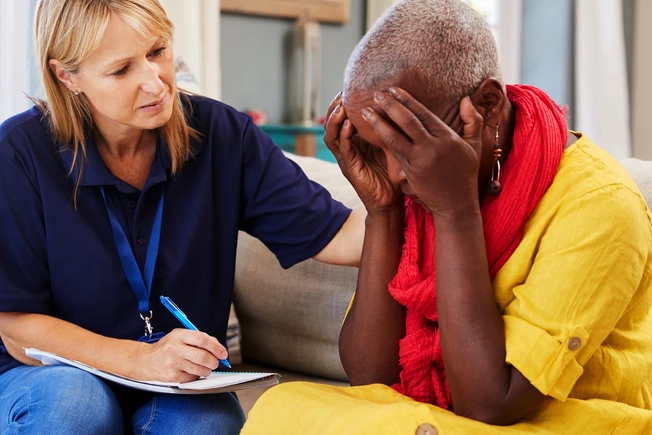Self-Care and Recovery After Trauma


Surviving a Traumatic Experience
If you’ve ever been through a highly stressful event or series of events, you’ve been through a traumatic experience. A feeling of helplessness, horror, and in some cases, the challenges of a serious injury (or the threat of one) are common after these events. There are many ways you can help yourself get through it.

Don’t Isolate Yourself
Reach out to friends and family. If others have had the same experience, talk to them. They may be having some of the same feelings that you are. Open the lines of communication as soon as possible after your traumatic event. It’s an important part of your recovery.

Seek Professional Help
The stress that comes with a traumatic event can be crippling. Sadness, fear, grief, and depression can take hold. If your feelings in the first month after the event are so severe that they interfere with your regular life, find a mental health expert in your area who can help.

Join a Support Group
Talking over what you’re going through with others who’ve had the same experience, or are still going through it, can be helpful after a trauma. Not only will groups like these lift you up, they can give you tips on how to deal with what’s happening. Your doctor or mental health expert can point you to local support groups, or you can find one online.

Face It (Don’t Avoid It)
As tempting as it may be to try to ignore or forget a traumatic event, a key ingredient in recovery is learning to be OK with your memories of it and the things that trigger them without trying to avoid them. Facing your feelings head-on is important because you want to be able to take care of them in a way that helps you move forward.

Exercise
Get out and move. Experts say it’s one of the most effective ways to handle the aftereffects of a traumatic event. Deep breathing, gentle stretching, and walking are all good choices. If you want your exercise plan to be a bit more challenging, that can help, too. Don’t force things, though. If you’re tired, it’s OK to rest.


Listen to Your Body
Your body (and mind) will tell you what to do to heal. Eat healthy meals. Rest when you get a chance. Do things that make you happy. Take a bath. Work toward a regular sleep schedule where you go to bed and wake up at about the same time each night in a cool, dark, quiet room. Read. Do something with friends. Go for a nice stroll. Watch a ballgame. Go to a play. Whatever makes you feel good, take the time to treat yourself.

Stay Away From Alcohol
A drink to bring on sleep or to take off the edge is one way some choose to go through the stress of a traumatic event. They’re trying to numb the emotions or forget things. It may feel like it’s working in the short term, but it can do damage in the long run. The problem is, if the stress continues, alcohol (or drug) use may continue, too. That could lead to mental and physical problems and long-term dependence.

Get Back Into Your Routine
Regular life can be interrupted by a traumatic event. A goal for those trying to get past the stress of trauma is to return to a day-to-day schedule as soon as possible. Getting your groove back can help you re-establish a sense of normalcy and regain a sense of control over your life.

Fix the Little Things
Take the time to resolve small conflicts in your life so they don’t build up and add stress. If you have large tasks, break them into little ones, set some priorities, then tackle them when you can. Checking those off your list will let you focus on the bigger battles.

Take Stock
You can ease the stress of traumatic events by stepping back, taking stock of your life, and concentrating on what’s important. Strengthen bonds with family, friends, and community. Reassess personal goals and come up with a plan to reach them. Volunteer and give a little more to charity. All of these things can help overcome the stress of trauma.

Meditate
Even if you’re unfamiliar with meditation, turning inward to ease stress can help. Deep breathing or focusing on your exhale can help ease your mind and relax you. Focus your attention on breathing or on parts of your body while you meditate. That can keep your brain from thinking about your stress. You may want to repeat a mantra or pray. Mindfulness, tai chi, and yoga are also great ways find your calm.

Celebrate Life
It’s important to realize that it’s OK to feel joy, to celebrate successes, and revel in the warmth of your family and friends even after a traumatic event. It’s all part of the road to recovery.

Turn Up the Tunes
A recent study found that cultural events like sports and the arts can help communities recover from a shared trauma. Music, too, can be integral to communities and individuals, whether it be music therapy, making music, or just listening. Meditating while hearing a favorite song can help, too.